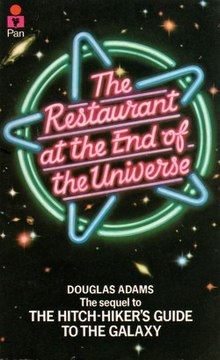The universe had a beginning. It has ever since expanded at a speed that's somehow constantly increasing. A finite amount of time has passed since the big bang. Logic suggests, the universe, at any given point of time, is finite (although text books say it's infinite) because only so much expansion could have taken place after a finite period of time has elapsed since the big bang. This is of course extremely large, but not really infinite at any given instant of time, is it?
Now, say NASA designs a spacecraft that's tremendously fast- much faster than the rate of expansion of the universe, and faster than light itself (i understand this is an impossibility, but lets just assume someone has managed to make a spacecraft like this). The astronaut fires up his engines, and flies his ship in a certain direction. After some time, won't he reach the outer limits of the universe? What happens then? Will he see a physical wall or something that will prevent him from leaving the boundaries of the universe? He cannot get past the external limits of the universe can he, if he could how would we know this is the end of the universe ...
Now, say NASA designs a spacecraft that's tremendously fast- much faster than the rate of expansion of the universe, and faster than light itself (i understand this is an impossibility, but lets just assume someone has managed to make a spacecraft like this). The astronaut fires up his engines, and flies his ship in a certain direction. After some time, won't he reach the outer limits of the universe? What happens then? Will he see a physical wall or something that will prevent him from leaving the boundaries of the universe? He cannot get past the external limits of the universe can he, if he could how would we know this is the end of the universe ...



